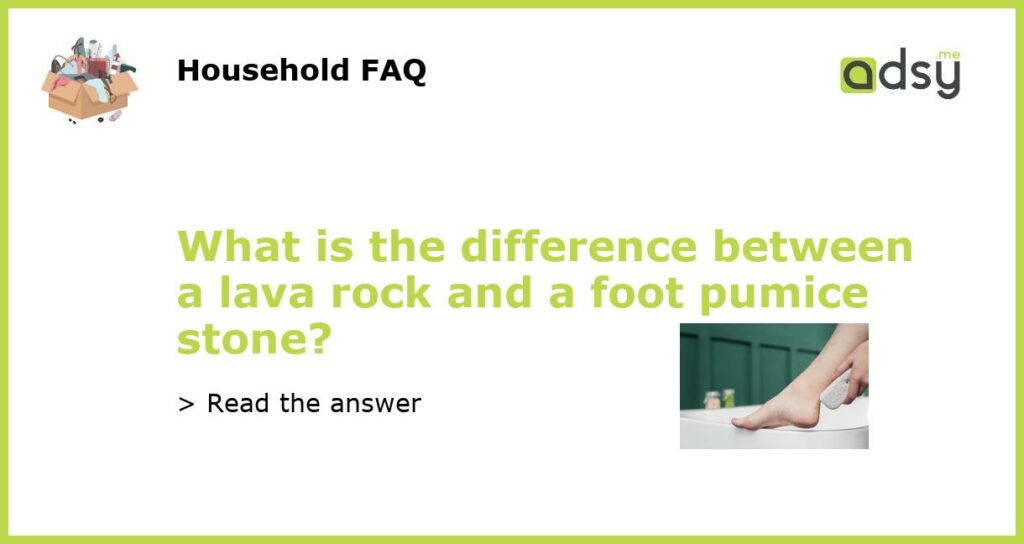What are Lava Rocks?
Lava rocks are a type of igneous rock that is formed from the solidification of molten lava. They are usually dark in color and have a rough texture. Lava rocks are commonly used for landscaping and to create decorative accents in gardens and outdoor spaces. They are also used in grills and fire pits. Due to their porous nature, lava rocks can absorb and retain water, making them ideal for use in hydroponic systems.
What are Foot Pumice Stones?
A foot pumice stone is a type of volcanic rock that is used to exfoliate and remove dead skin cells from the feet. Unlike lava rocks, pumice stones are softer and have a more porous texture. They are typically used in the shower or bath to scrub away rough patches of skin on the feet. Foot pumice stones are commonly used in pedicures to smooth and soften the skin on the feet. They can also be used to polish jewelry and remove stains from clothing.
What is the Difference Between Lava Rocks and Foot Pumice Stones?
The main difference between lava rocks and foot pumice stones is their texture and intended use. Lava rocks are rough, porous, and typically used for landscaping or as a decorative element in outdoor spaces. Foot pumice stones are softer, more porous, and used primarily for exfoliating and removing dead skin cells from the feet. While both are volcanic rocks, they have different properties that make them better suited for different purposes.
Can Lava Rocks Be Used for Exfoliation?
Lava rocks can be used for exfoliation, but they are not recommended for use on the skin. The rough texture of lava rocks can cause scratches and irritation on the skin, which can lead to infection or other skin problems. Instead, it is recommended to use a pumice stone specifically designed for use on the feet or other areas of the body. These stones are softer and gentler on the skin, making them a safer and more effective option for exfoliation.
Which is Better for Hydroponic Systems?
When it comes to hydroponic systems, lava rocks are generally considered to be a better option than foot pumice stones. The porous nature of lava rocks allows them to absorb and retain water, which can help to provide a stable environment for plants to grow. Foot pumice stones, on the other hand, are more fragile and can break down over time, potentially clogging the hydroponic system. While both types of volcanic rocks have their own unique qualities, lava rocks are generally considered to be the better choice for hydroponics.






